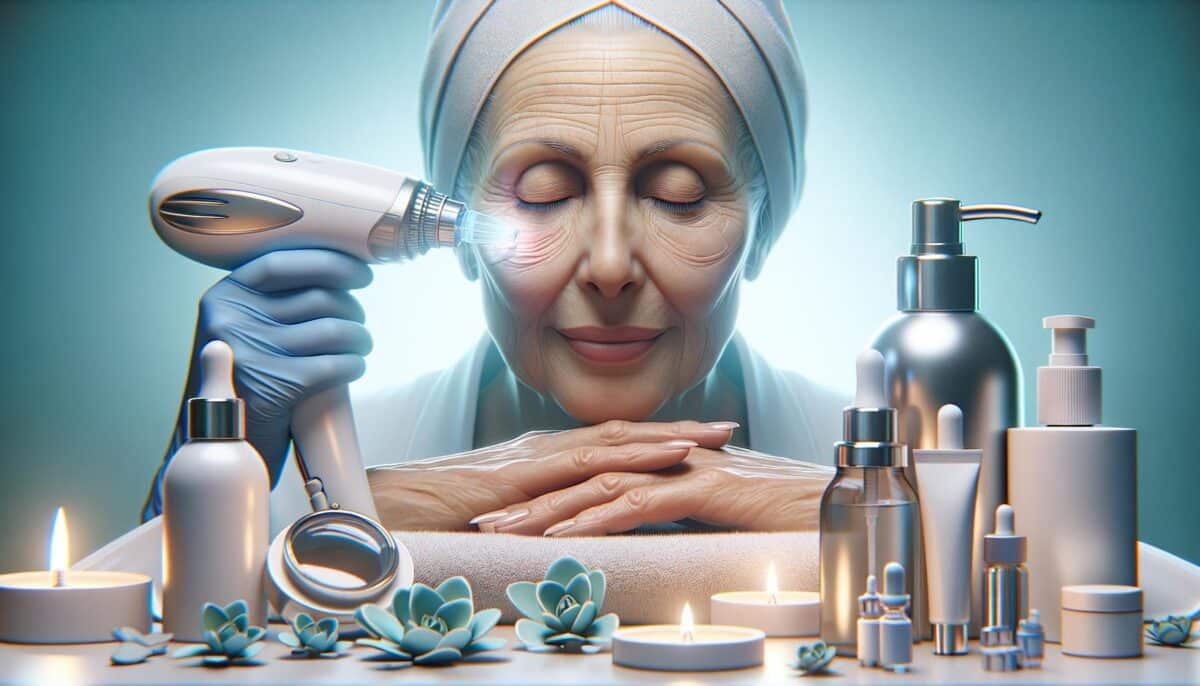Understanding the Causes of Wrinkles
Wrinkles are a natural part of the aging process, primarily caused by a combination of factors that affect the skin’s elasticity and smoothness. For seniors, recognizing these causes is crucial in selecting the most appropriate treatment options. Over time, the skin loses collagen and elastin, proteins critical for youthful, supple skin. Sun exposure also plays a significant role, as ultraviolet (UV) rays break down these essential proteins, accelerating the aging process. Additionally, lifestyle elements, such as smoking and excessive alcohol consumption, can contribute to the development of wrinkles by dehydrating the skin and promoting free radical damage. By understanding these causative factors, seniors can make informed decisions on how to approach wrinkle treatments.
Exploring Non-Invasive Treatments
Non-invasive treatments have gained popularity among seniors seeking to reduce the appearance of wrinkles without undergoing surgery. These methods are appealing because they generally involve minimal recovery time and lower risks of complications. Some common non-invasive options include:
- Topical creams containing retinoids and antioxidants, which help to boost skin cell turnover and combat oxidative stress.
- Microdermabrasion, a procedure that gently exfoliates the skin, removing dead cells and stimulating new skin growth.
- Laser therapy, which can penetrate the skin to promote collagen production and even out skin tone.
- Injectables such as botulinum toxin and dermal fillers, which can temporarily smooth out wrinkles and restore volume.
These treatments can offer considerable benefits, but results vary depending on individual skin types and conditions.
Considering Surgical Options
Some seniors might consider surgical options for more dramatic and longer-lasting results in wrinkle reduction. Surgical procedures, although more invasive, often provide significant improvements to the skin’s appearance. Facelifts, brow lifts, and eyelid surgeries are among the most prevalent surgical interventions aimed at correcting wrinkles and sagging skin. These surgeries work by tightening facial tissues and removing excess skin, resulting in a smoother, more youthful look. However, candidates for surgery should weigh the potential risks and recovery times associated with these procedures. Consulting with a qualified dermatologist or plastic surgeon is crucial to determining the most suitable approach.
The Role of Lifestyle in Wrinkle Prevention
While treatments can address existing wrinkles, lifestyle choices play a vital role in their prevention and management. Seniors looking to reduce wrinkle development should focus on maintaining a healthy lifestyle, which includes:
- A balanced diet rich in vitamins, minerals, and antioxidants to support skin health.
- Regular hydration to keep the skin moisturized and elastic.
- Consistent use of sunscreen to protect against damaging UV rays.
- Avoiding smoking and limiting alcohol intake to reduce toxin exposure and skin dehydration.
- Regular exercise, which improves circulation and enhances overall skin tone.
Adopting these practices not only helps delay the appearance of wrinkles but also promotes overall well-being.
Choosing the Right Treatment
Navigating wrinkle treatment options for seniors requires personalized consideration of individual skin needs and health conditions. It is essential to discuss treatment possibilities with experienced dermatologists who can assess skin types, medical history, and aesthetic goals. Together, seniors can develop a comprehensive plan that may combine several treatment options for optimal results. This personalized approach ensures safety and satisfaction while minimizing risks and maximizing the benefits of various wrinkle therapies.
Conclusion: Tailoring Solutions for Aging Skin
Effectively addressing wrinkles involves understanding the root causes and exploring a range of treatments available for seniors. By leveraging both non-invasive and surgical options, while adopting healthy lifestyle choices, it is possible to achieve desirable outcomes. Regular consultations with skincare professionals ensure that seniors have access to tailored advice and strategies that align with their needs. This holistic approach not only improves the appearance of aging skin but also enhances the overall quality of life.
